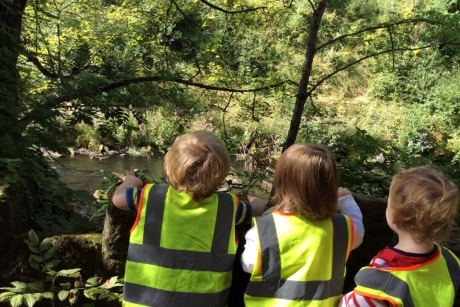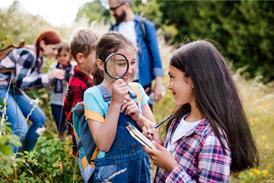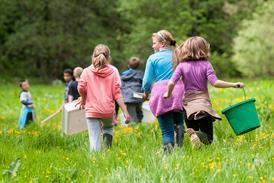
Sarah Blackwell, chairman of the Archimedes group of companies that delivers Forest School training across the country reveals what she considers to be the five key elements that contribute to a successful LOtC experience.
For the past 15 years Sarah Blackwell has been involved both directly and indirectly (through partners) in delivering Forest School training sessions across the country.
The companies of which she is a chairman run more than 60 different training sessions every year.
To date, thousands of educators have been trained using the Archimedes model of Forest School training that Sarah has been instrumental in developing.
Plus, Sarah has also carried out research into the impact of Forest School education on wellbeing, resilience and confidence. And written books on the matter.
After almost two decades of rich experience, she believes that the best LOtC sessions should involve the following elements in order to be successful, and to engage all the pupils involved, who most likely learn best in different ways.
These elements of learning can be applied and looked at as a guide for when considering other trips outside the classroom.

Pictured: Sarah Blackwell
Experimental learning
Most children learn well when they are given the opportunity to learn through doing. The best LOtC experiences should harness children’s natural curiosity, let them interact with their environment, make mistakes and question their experiences themselves.
Learning through play
Playing in the outdoors is a process which requires children to use all their senses. Collaborative play also allows pupils to enhance their social skills and gives them the opportunities to learn about their strengths and limitations.
The enjoyment of games helps pupils communicate and learn about their roles and others’, enforcing respect for one another as well as for the self.
Learning through place
Children should be encouraged to develop a long term connection to a natural place, by engaging with it. This promotes emotional connections between learning and the environment.
Learning in a different location besides school means that students can apply their knowledge – associating what they know already with a different environment.
Story telling
Story telling plays an important role in successful LOtC and is aimed at developing the physical, psychological and social elements of learning.
Literature serves to teach, entertain, warn, inform, counsel and stimulate critical thinking skills in learners.
Loose parts activities
This element of Forest Schools teaching involves assembling natural materials into different shapes and structures in the woodland setting. Children are therefore, encouraged to use their own imagination and creativity to construct.
This highlights the importance of children’s’ involvement with interactive displays, workshops and activities. Linking back to the experimental element of learning through ‘doing’.
For more information on Forest Schools, visit www.forestschools.com.









